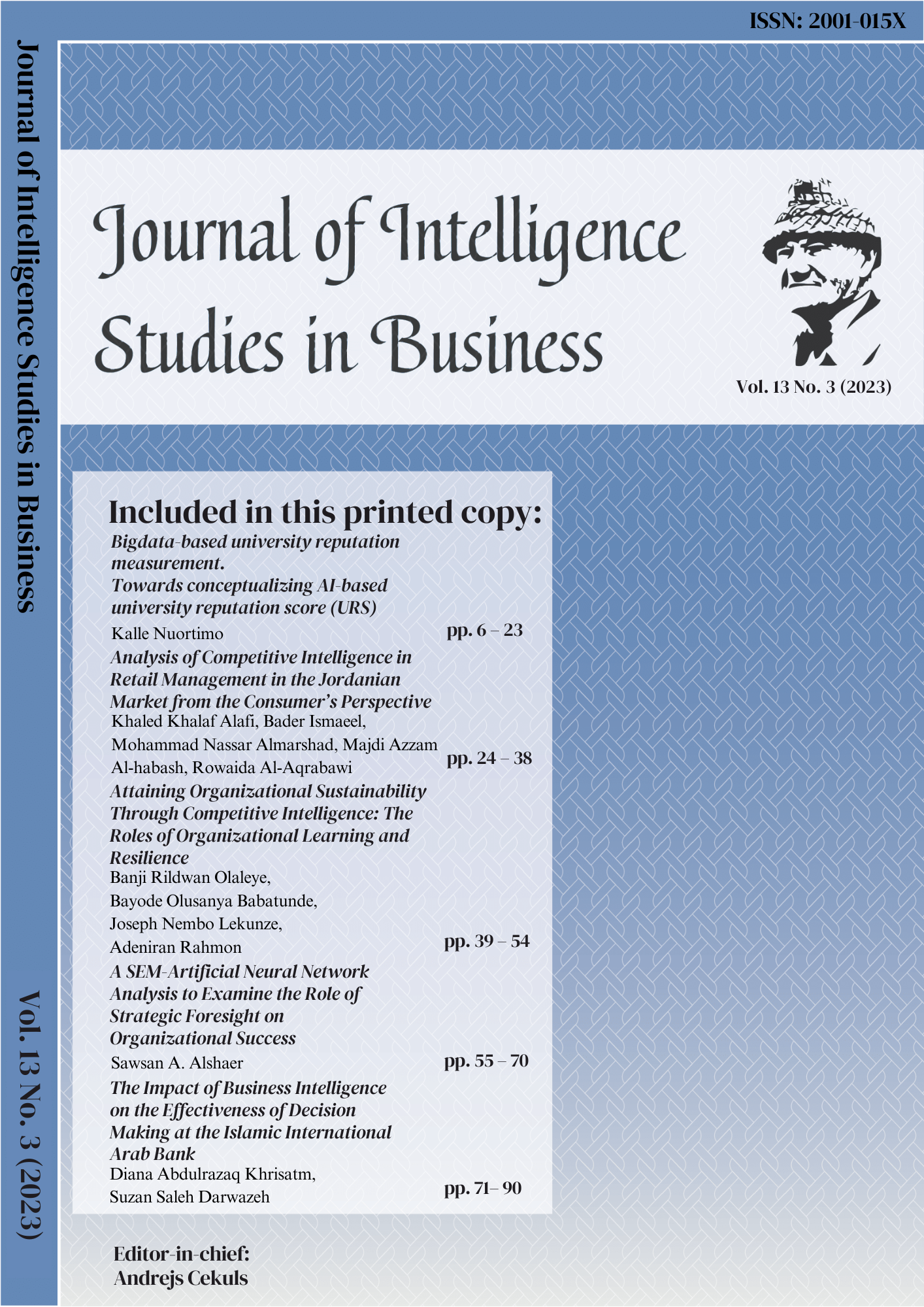Strategic Synergies: Enhancing Organizational Resilience and Sustainability through Competitive Intelligence and AI
DOI:
https://doi.org/10.37380/jisib.v13i3.1182Keywords:
Competitive Intelligence, Strategic Synergies, Information gathering, Competitive AdvantageAbstract
Competitive intelligence serves as a critical strategic lever that enables organizations to disrupt market dynamics and competitor behavior. By collecting, analyzing and interpreting relevant data, companies can anticipate market changes and strategically position themselves, emphasizing the role of AI in maintaining competitive advantage. At the same time, organizational learning is identified as a cornerstone that promotes adaptability and innovation. This continuous learning process not only improves competencies, but also embeds a culture of innovation, positioning learning organizations to better navigate the uncertainties of the global market and take advantage of new growth opportunities.
References
Søilen, K.S. (2019) How managers stay informed about the surrounding world. Journal of Intelligence Studies in Business, 9 (1), pp. 28-35. DOI: https://doi.org/10.37380/jisib.v9i1.403
Calof, J., Arcos, R., Sewdass, N. (2018) Competitive intelligence practices of European firms. Technology Analysis and Strategic Management, 30 (6), pp. 658-671 DOI: https://doi.org/10.1080/09537325.2017.1337890
Downloads
Published
Issue
Section
License
Copyright (c) 2024 Journal of Intelligence Studies in Business

This work is licensed under a Creative Commons Attribution-NonCommercial-NoDerivatives 4.0 International License.
Authors who publish with this journal agree to the following terms:
- Authors retain copyright and grant the journal right of first publication with the work simultaneously licensed under a Creative Commons Attribution License that allows others to share the work with an acknowledgement of the work's authorship and initial publication in this journal.
- Authors are able to enter into separate, additional contractual arrangements for the non-exclusive distribution of the journal's published version of the work (e.g., post it to an institutional repository or publish it in a book), with an acknowledgement of its initial publication in this journal.
- Authors are permitted and encouraged to post their work online (e.g., in institutional repositories or on their website) prior to and during the submission process, as it can lead to productive exchanges, as well as earlier and greater citation of published work (See The Effect of Open Access).








